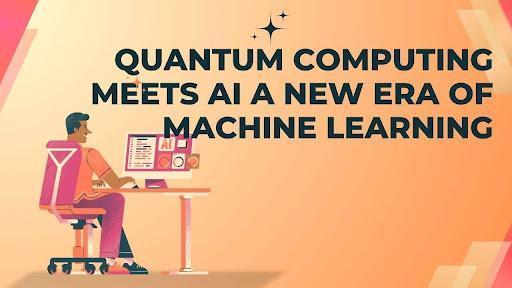
The intersection of quantum computing and artificial intelligence is setting the stage for a revolution in how we process information. Balakrishna Sudabathulaa technical expert in this field, delves into the advancements in reshaping machine learning. His work highlights how these emerging technologies are tackling computational limitations and unlocking new possibilities across multiple domains.
The Evolution of Language Models
Language models have come a long way, evolving from basic text predictors to sophisticated AI-driven systems. These models now integrate persistent memory, allowing them to retain context over time, leading to enhanced personalization and more coherent interactions. Advanced reasoning capabilities are also emerging, enabling AI to process complex relationships and perform multi-step problem-solving with greater accuracy.
Multimodal AI: Breaking Textual Barriers
AI is no longer restricted to text-based inputs. The latest advancements incorporate multimodal capabilities, enabling seamless integration of images, audio, and video. This shift improves contextual understanding, making AI interactions more natural and intuitive. The ability to analyze and generate responses across multiple formats enhances user experience and application efficiency.
Quantum Computing: The Game Changer
Traditional computing has struggled with the limitations of processing high-dimensional data, but quantum computing offers a breakthrough. By leveraging quantum principles such as superposition and entanglement, AI systems can perform calculations at an unprecedented scale. These improvements significantly enhance neural network training and optimization, making machine learning models more efficient and powerful.
Post-Quantum Cryptography: Securing the Digital Future
With quantum advancements come new security challenges. Many existing encryption systems rely on mathematical complexity, which quantum computing could easily bypass. The development of quantum-resistant cryptographic techniques is crucial in protecting sensitive data. Researchers are now exploring new cryptographic frameworks to ensure digital security in the post-quantum era.
AI and Quantum Synergy in Research and Industry
Quantum-enhanced AI is proving to be a transformative force in fields such as drug discovery and financial modeling. By processing vast amounts of data simultaneously, these systems offer precise predictions and solutions that were previously unattainable.
Addressing Quantum Computing Challenges
Despite its potential, quantum computing faces significant hurdles, including error correction and system scalability. The ability to maintain quantum coherence over extended operations remains a primary focus of research. Industry leaders are actively developing robust error-correction mechanisms to improve reliability and bring quantum computing closer to mainstream adoption.
Recent advancements in quantum error correction protocols have shown promising results in mitigating decoherence effects, though challenges persist in achieving the necessary fault tolerance thresholds. Researchers are exploring innovative approaches to qubit design and control systems, while quantum software development frameworks continue to evolve. The integration of machine learning techniques with quantum error correction strategies has emerged as a promising direction for enhancing system stability and computational accuracy.
The Road Ahead: A Hybrid Computational Model
The future of AI and quantum computing lies in a hybrid approach, combining classical computing’s reliability with quantum computing’s speed and efficiency. This fusion will enable AI to tackle complex problems more effectively, paving the way for groundbreaking innovations in multiple sectors. I am optimistic that these advancements will redefine computational science, unlocking new possibilities beyond our current technological limits. The integration of quantum-inspired algorithms with traditional machine learning frameworks is already showing promising results in optimization and simulation tasks.
In conclusion, the convergence of AI and quantum computing is more than just an incremental advancement it is a paradigm shift that will redefine how we approach machine learning and data processing. As researchers continue to refine quantum-enhanced AI systems, the potential for transformative applications across industries grows exponentially. Balakrishna Sudabathula‘s insights into this field underscore the significance of these innovations and the exciting possibilities that lie ahead.